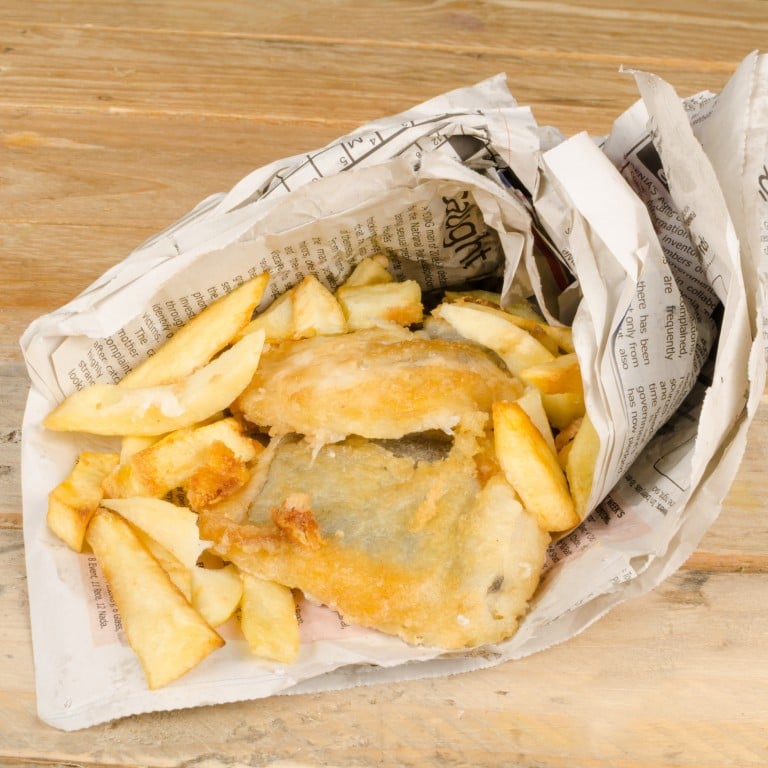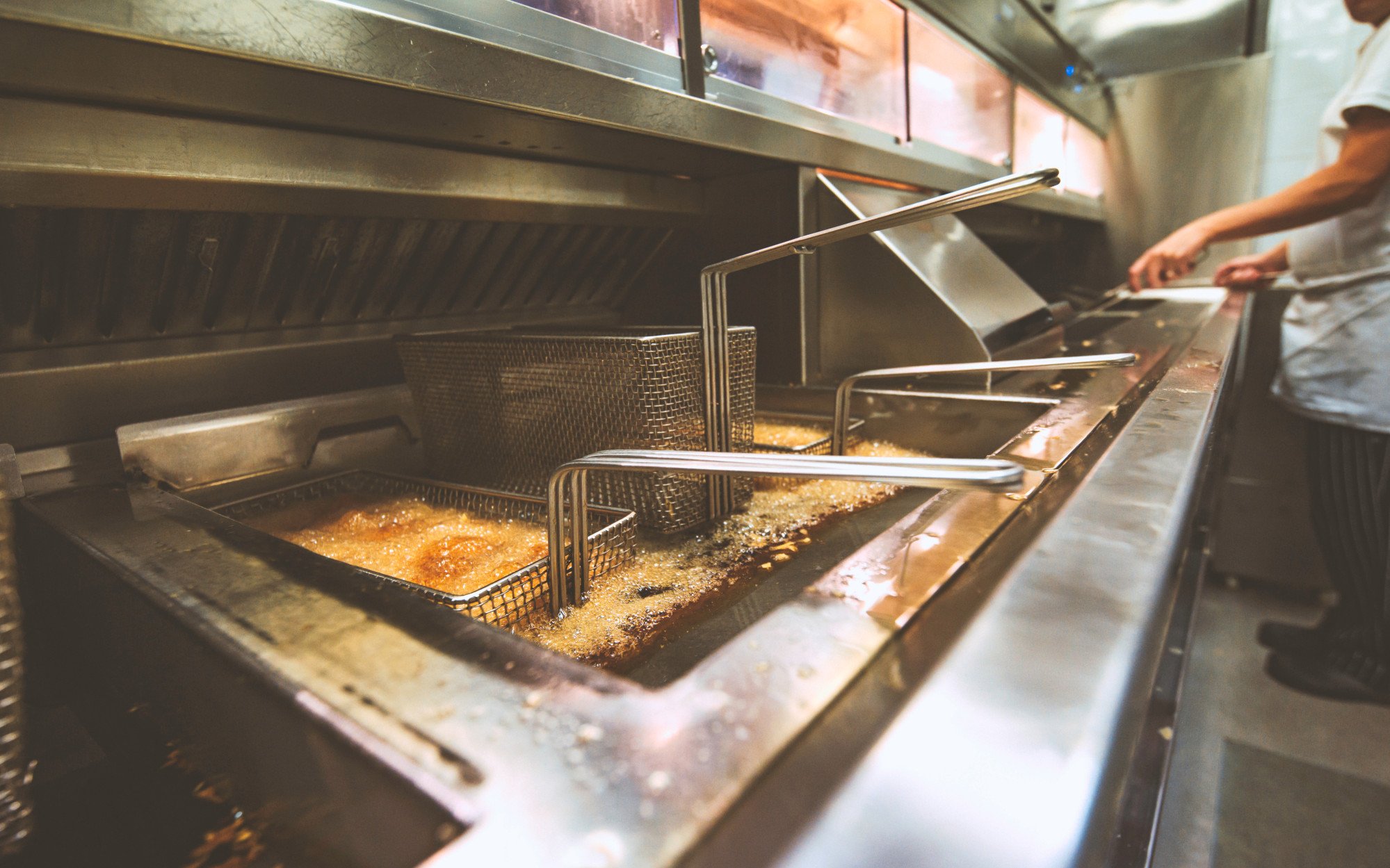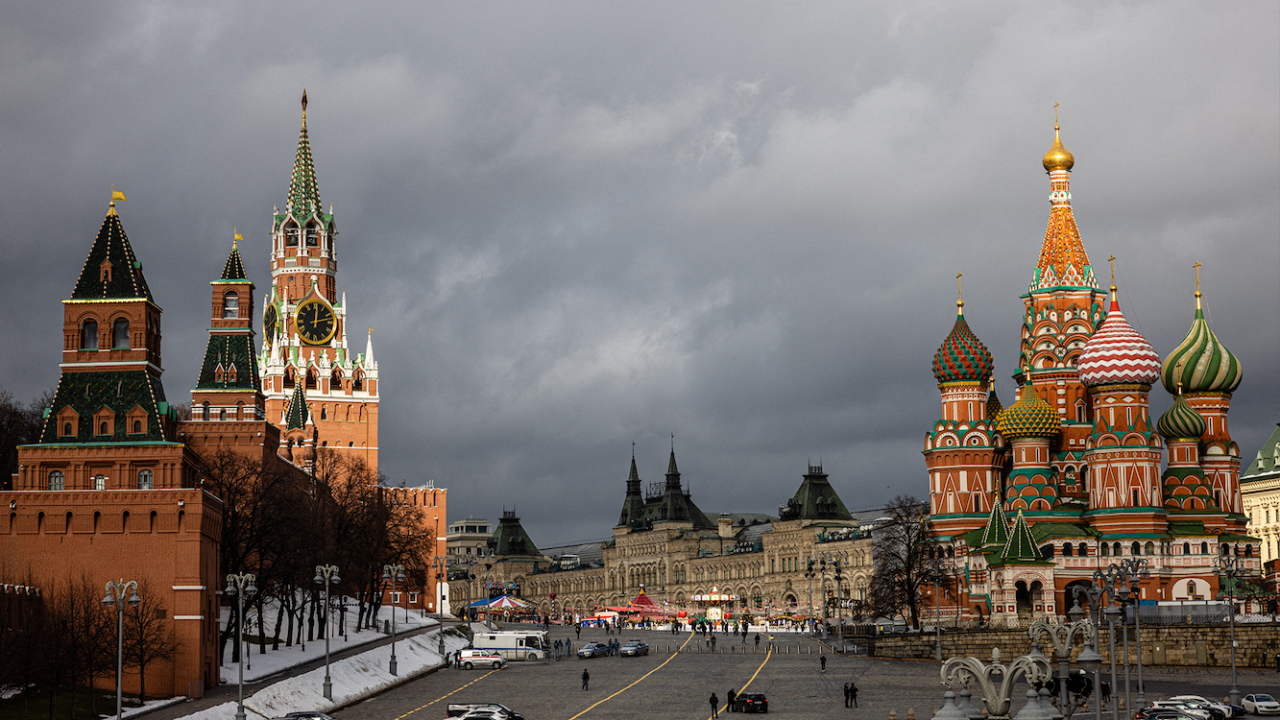
Ukraine war, Russia sanctions could batter British fish and chip shops
- Western sanctions on Russian entities and industries are being felt in the UK
- UK restaurants were already impacted by Brexit and the Covid-19 pandemic
The UK’s iconic fish and chip shops could be facing their worst battering in decades, in part because of Western sanctions against Russia for its invasion of Ukraine.
The National Federation of Fish Friers (NFFF), the official body that represents the fish and chip industry, is warning that up to half the country’s 10,500 operators may shut or convert int0 chicken or kebab takeaways unless the UK government helps.
“The cost of fish is the highest it’s ever been – and this is all before the effects of sanctions on the Russian fish, which constitute half of our cod and haddock,” NFFF President Andrew Crook told South China Morning Post.
“We want to put pressure on the Russian regime, because what is going on in the Ukraine is awful. But sanctions might just take our industry with it.
“It’s impossible to replace the volume of fish in this country that comes from Russia – they are a massive white fish producer and it’s a frightening scenario.”
Western countries, including the UK, have responded to Russia’s invasion of Ukraine with massive sanctions that have targeted Russian entities and industries.
But there are worries that the war could disrupt global food supplies, as both Ukraine and Russia are major exporters of wheat. Devastation of Ukraine’s sunflower industry could also have significant impact.

Even before Russia’s invasion on February 24, UK restaurants and takeaways complained of pressures. Inflation, cost and availability of key ingredients as well as other Brexit and Covid-19 pandemic impacts have resulted in hundreds of restaurant closures in the UK.
Eyes will be on the UK Chancellor of the Exchequer, Rishi Sunak, who is due to announce a series of measures to keep the UK economy afloat in his spring budget statement on Wednesday.
Crook hopes Sunak will not to hike the value-added tax (VAT) rate for the restaurant trade from its current 12.5 per cent back to pre-pandemic rate of 20 per cent.
‘Financial nuclear war’: Russia now world’s most-sanctioned nation
“We just hope that the government listens to us – we have always worked on tight margins and we need the help,” Crook said.
Consumer price inflation hit a 30-year high in January and is expected to rise even further when new data is published this week.
Economists are expecting it to have risen to at least 5.9 per cent, creating a dilemma for the Bank of England, which needs to balance runaway prices without damaging economic growth.
Financial expert Martin Lewis, a popular TV personality and founder of the MoneySavingExpert website, warned that millions of households in the UK may face a stark choice between heating their homes or buying food next winter.
“I’ve been a money savings expert since 2000,” he told the BBC this week. “I’ve been through the financial crash, I’ve been through Covid, which was mitigated by some of the measures the chancellor put in place. This is the worst.
“I’m receiving messages from people telling me money prioritisation used to be: ‘do I go to the hairdressers or do I go to the pub and have a takeaway?’. Now it’s about ‘do I prioritise feeding my children over feeding myself?’”
House Ukrainian refugees in Russian oligarchs’ mansions, says UK
He said households could see their energy bills increase by another £600 (US$790) later this year, bringing the average annual energy bill to a staggering £3000 as a result of the war.
Gas and electricity bills were already poised to climb by more than £300 in October before Russian President Vladimir Putin sent troops into Ukraine. Campaigners say a £200 loan offered by the government to help households pay their energy bills will achieve almost nothing.
According to research by the left-leaning New Economics Foundation, 34 per cent of UK households, some 23.4 million people, will be unable to afford some essentials.
“In order to avert the worst real-terms incomes squeeze in 50 years, the government must strengthen the UK’s social security so that support can flow quickly and efficiently to where it is needed most,” NEF economist Sam Tims said.
Labour shortages in the agricultural sector related to the UK’s departure from the European Union are also adding to rising food prices.
The UK’s labour-intensive potato industry is especially hard hit – delivering another blow to fish and chip shops.
“I had a joke with a colleague who had to close his business,” Crook said. “He said he wanted to put his head in the oven and kill himself, only he couldn’t afford the gas.”
The first fish and chip shop in the UK is believed to have opened in 1860 in Bow in East London, by Jewish émigré Joseph Malin.


